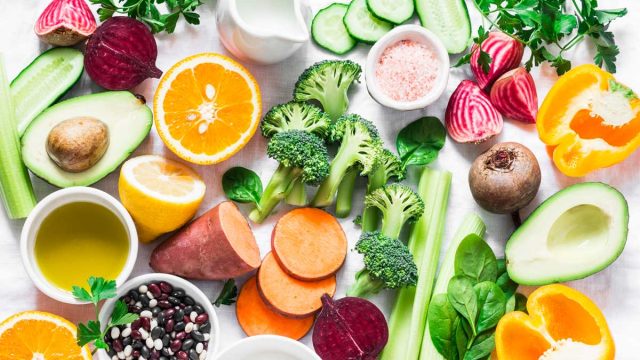5 Suprising food facts
Kateřina Gilarová
1. Hamburgerology can be studied
McDonald´s celebrated its 80th birthday last year. Over the years, this company has built not only a love for burgers around the world. They also built a university, where hamburgers could be studied. After three years of study, you will get a bachelor´s degree in hamburgerology. Even more interesting is the fact, that the very first Hamburger University, was built in the western suburbs of Chicago, Ilinois in 1961 by Ray Kroc, the son of Czechoslovak emigrants. Getting there, is more difficult, than at a prestigious university like Cambridge or Harvard. For example in Shanghai, only 1 percent of candidates succeed.
2. Staying in the sun is the best diet
The sun affects your appetite, hormones secretion, sleep rhythm, and mood. Sunlight stimulates the secretion of a hormone, called serotonin, which contributes to a feeling of well-being and happiness. During the day, the human brain secretes more of this hormone, which “turns” into melatonin at night, a hormone that regulates sleep and wakefulness. When there is little sunlight, the body tries to compensate for this deficiency with substances that cause pleasure. The caffeine and sugar we consume during the day stimulate serotonin secretion, while alcohol can stimulate its production in the evening.
3. Bee honey is one of the best preservatives
Honey is the only food that will never go bad, but provided that it contains less than 18% water. Otherwise, it´s in danger of fermentation. The preservative effects of honey have been known since antiquity and have been used, among other things, to embalming bodies. But honey also contains almost all the substances needed to sustain life, which could theoretically be survived. In addition to the carbohydrates it has by far the most abundant, it is also enzymes, vitamins, minerals, and water. Honey in combination with cinnamon helps against high cholesterol, bladder infections, and - perhaps paradoxically - against toothache. Propolis, a blend of beeswax, resins, balms, and essential oils, can be more effective than some antibiotics in some cases.
4. Already during pregnancy, the child’s taste preferences are determined
The ability to recognize tastes begins to develop around the 14th week of pregnancy. The fetus is already able to taste. The olfactory organs are even better at this, they´re functional since the 10th week. The ingestion of amniotic fluid increases with its sweet taste and weakens when it has a bitter or sour taste. “During pregnancy, the fetus obtains information from the outside world through amniotic fluid. The mother thus has a chance to influence his taste preferences in the future at the prenatal age of her offspring”, explains Associate Professor Richard Rosenkranz of Kansas State University.
5. Coconut water replaces blood plasma
Coconut water pays for one of the healthiest drinks ever. It´s formed before young coconut begins to create white flesh, while coconut “milk” is made from this flesh and contains fat. Coconut water is also very popular among athletes, it´s compared to the elixir of youth and is considered a sexual stimulant. It stimulates water circulation in the body and improves blood circulation. The content of kinetin, an anti-aging cell that promotes cell division, is also noteworthy. Coconut water in the nut is naturally sterile because it difficultly enters the nut, which is great filtration. In addition, coconut water is an isotonic drink and is almost identical to human blood plasma (a liquid part of blood, 54% in men and 59% in women its volume). During the Pacific War, coconut water was to be used as a blood transfusion for wounded soldiers. However, a high proportion of potassium and calcium is risky in this sense.


